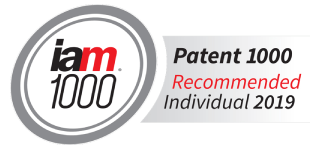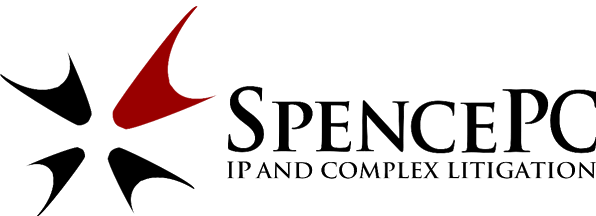Services
Practice Areas
Why SpencePC?
Clients choose SpencePC because we do outstanding work for fair compensation. Unlike our competitors, we encourage the use of alternative-fee agreements that more closely align our clients’ interests with the Firm’s interests. As a result, our clients pay only for the value they receive.
Our Philosophy
Our philosophy is simple: be outstanding and offer a unique value proposition. Hourly billing creates the wrong incentive for attorneys to work longer, not smarter. Instead, we encourage alternative-fee arrangements that reward success and efficiency. By doing so, our attorneys remain focused on obtaining the best results for our clients in the most cost-efficient manner.
Our Skills
We are attorneys who specialize in intellectual property and complex litigation. We hold science, engineering, and law degrees from the nation’s top schools. Following our education, each of us received years of additional training from prestigious, top-tier law firms. Our billing model ensures we remain focused on obtaining the best results in the most cost-efficient manner.
Associations & Accolades
Navigating Contractual Rights and Remedies During the COVID-19 Pandemic: Understanding Your Options for Relief and How to Minimize Liability.
By William Cory Spence, Michael McDonough, and Daniel Hess
As we continue to live and work through the COVID-19 pandemic, many businesses are starting to feel the direct impact of fewer customers, tighter budgets, and strains on contractual obligations. During this time of uncertainty and fluidity, it is more important than ever to have a firm handle on contractual rights, responsibilities and variables. Such a grasp will allow businesses to make quick and effective decisions moving forward.
Our previous article outlined certain contractual clauses such as force majeure and other common law doctrines such as impossibility and commercial frustration which may be avenues of relief for obligations currently facing many businesses. In addition to knowing whether these defenses may be available to help your business, it is imperative to know what specific relief may be available or what potential liability you may face. This article will describe some of the nuances of invoking these contract provisions and the different strategies your business can utilize to your benefit. We will outline common provisions of force majeure in commercial contracts as well as the related procedures embedded within the Uniform Commercial Code (“UCC”).
A. Common Contractual Provisions to Compensate for a Force Majeure Event
If the current COVID-19 pandemic impacts your contracts and impairs either your ability to meet your contractual obligations or if the other contracting party is unable to meet their obligations your contract may contain provisions to compensate for such an event and give some clarification as to next steps. Contracts will often identify what rights the non-breaching party may take with regards to the contract when confronted with a force majeure e event. Such provisions typically include the right of termination, reduction or pro-rata reduction in payment, or substitute content/products.
The Right of Termination
The right of termination is often a standard provision for such a force majeure event and allows the non-breaching party to terminate the contract if the applicable event meets certain criteria. For example, a right of termination provision traditionally states that “in the event of a force majeure event resulting in non-compliance with the provisions of this Agreement for a period of more than (X) days, the non-breaching party shall be entitled to terminate this Agreement, at its election, upon written notice to the breaching party.” This type of provision gives the non-breaching party the right to terminate the contract. While the termination of some contracts may be warranted under current circumstances, such a decision should be made with the overall wellbeing of your business in mind.
Reduction in Payment
Instead of the right of termination, some contracts contain provisions to allow the non-breaching party to receive a refund of payment or only perform on a reduced or pro-rata reduced schedule. For example, a reduction or pro-rata reduction clause usually states, “in the event of a force majeure event resulting in non-compliance with the provisions of this Agreement for a period of more than (X) days, the non-breaching party shall be entitled to a pro rata reduction in payment of the Agreement fees.” Such a provision allows the non-breaching party to recoup payments made under the contract in a pro-rata fashion.
Substitution of Performance/Products
Another often used provision for a force majeure event is the ability to substitute content or products. For example, the ability to substitute performance clause will normally state, “in the event of a force majeure event resulting in non-compliance with the provision of this Agreement for a period of more than (X) days, the party invoking the force majeure event may use its best efforts to provide substantially similar products or perform in a substantially similar manner as to that which is outlined in the Agreement. Acceptance of the substitution of products or performance shall be at the discretion of non-invoking party and shall be commenced within a commercially reasonable time frame.” While substitution of performance may seem like a reasonable alternative, the instant pandemic may make substitute products or performance nearly as difficult as the original performance.
B. Force Majeure for Commercial Goods and Purchase Order Issues
COVID-19’s global impact has disrupted supply chains and wreaked havoc on almost all expectations for 2020. Delays and cancellations of commercial good transactions are inevitable in times of such uncertainty. However, this time can also be ripe for predatory and dubious practices by businesses attempting to ignore their contract obligations and wrongfully use the COVID-19 pandemic as a scapegoat. A precise understanding of force majeure clauses and its relationship to the Uniform Commercial Code (“UCC”) can be both a sword and shield for your business relationships. For commercial transactions involving the sale of goods, the UCC acts as a default (but enforceable) set of rules when buyers and seller’s contracts fail to address unforeseen circumstances. Commercial “goods” under the UCC refers to the physical products that businesses are holding out for sale. 1 The UCC comes into play most often with large purchase order contracts such as a local car dealership filling out a standard form to buy 100 new cars from a manufacturer. Because these contracts are rarely negotiated and designed to be a “one-size-fits-all” solution, the UCC’s default rules facilitate any dispute that may arise between the buyer and seller. As we will discuss, the UCC outlines procedures both buyers and seller may invoke if their contract is frustrated by a force majeure -like event. Buyers and sellers in commercial good transactions should always look to the force majeure clauses within their contracts first as those will control. However, if the contract is silent as to these situations, the UCC can allow buyers and sellers to invoke force majeure -like protections so businesses should be equally aware of these unique procedures.
If you are a seller of commercial goods that is now crippled in your ability to fulfill your purchase orders on time, UCC § 2-615 will generally excuse a delay in performance for unforeseen circumstances, of which COVID-19 could apply. The seller must provide the affected buyers a written notice of the seller’s inability to satisfy the buyer’s purchase orders by the dates formerly agreed upon. 2 In the notice, the seller should include justification as to why it cannot fulfill its contract obligations: citing the truthfully unforeseen circumstances such as the COVID-19 pandemic. 3 The buyer will then have thirty (30) days to either (1) accept a modified purchase order or (2) cancel the purchase order contract in its entirety. If the buyer does not respond within thirty (30) days, then the UCC dictates that the contract has lapsed and both seller and buyer are excused from performance. 4 Sellers should be aware that the UCC requires them to treat all affected customers (buyers) reasonably and fairly if they are claiming this necessity to modify contract obligations. 5 While some discretion is allowed, 6 sellers should aim to act in good-faith with all of their customers to avoid any escalation of disputes.
Turning to the buyers’ perspective, if you are dealing with a seller, like the one described above, you should ensure they comply with these obligations. A seller’s written notice should expressly claim the circumstances why their delay in performance is warranted. If you have reason to doubt the sincerity of a seller’s representation, consult with counsel to help determine if this is a satisfactory invocation of force majeure by the seller. Assuming the seller’s invocation is reliable, buyers should consider the cost/benefit of either modifying the existing purchase order or cancellation of the contract entirely. Buyers must respond within thirty (30) days or else the contract will lapse.
Finally, it is important to recognize that the UCC does not provide clear default rules for when a buyer wishes to exercise a force majeure right to terminate a purchase order and refuse delivery of goods. Whether your company is the buyer or seller in this context, it is important to first keep written records of all communications. For the seller, consult with counsel about your available remedies under contract and UCC provisions and consider the cost/benefit of attempting to reach a modification of the purchase order. For the buyer, be sure to document all evidence that would support a force majeure invocation: eviction notices, revocation of licenses, or new government regulations that have impacted your business. Especially in these contexts, it is imperative to consult with counsel so that your business is suitably represented during this unprecedented pandemic.
While the strategies outlined above and applications of force majeure are common, every contract is unique. Legal counsel can be invaluable in ensuring your business can successfully enforce or defend against these provisions to your maximum benefit. If you have questions regarding your commercial contracts or your rights and responsibilities thereunder, please feel free to contact SpencePC.
1
U.C.C. § 2-105(1) (“’Goods’ means all things (including specially manufactured goods) which are movable at the time of identification to the contract for sale other than the money in which the price is to be paid, investment securities (Article 8) and things in action.”).
2
U.C.C. § 2-616.
3
U.C.C. § 2-616.
4
U.C.C. § 2-216(2).
5
U.C.C. § 2-215(b).
6
Perhaps to favor medical companies in more dire need or to favor long-time customer contracts. See
UCC § 2-215(b); but see Roth Steel Products v. Sharon Steel, Corp.
, 705 F.2d 134, 151 (6th Cir. 1983) (arguing existing contracts must take precedence over any newly entered contracts); see also Subaru Distribs. Corp. v. Subaru of Am., Inc.
, 2002 U.S. Dist. LEXIS 1699, at *111 (S.D.N.Y. 2002) (arguing it was unreasonable for seller to provide one customers purchase order in its entirety while wholly denying another customer any of the goods ordered under the purchase order).











